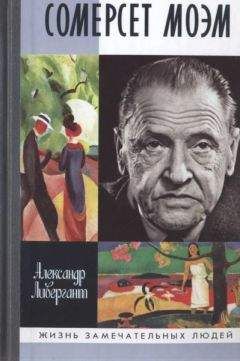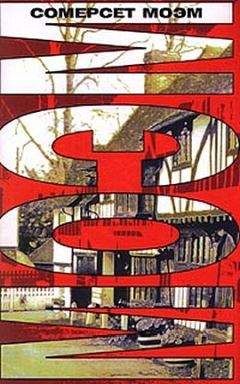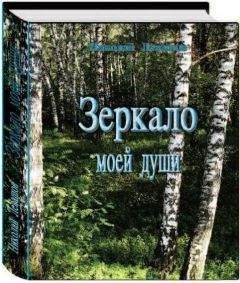Уильям Моэм - Мистер Всезнайка. Рассказы
He sat down at the piano and played one of the movements from a Beethoven sonata (он сел за пианино и сыграл одну из частей из сонаты Бетховена; movement — движение; частьмузыкальногопроизведения). He did not play very well (играл он не очень хорошо). I looked at his music (я взглянул на /его/ ноты), Schumann and Schubert (Шуман и Шуберт), Beethoven (Бетховен), Bach and Chopin (Бах и Шопен). On the table on which he had his meals was a greasy pack of cards (на столе, за которым он ел: «принимал пищу», /лежала/ засаленная колода карт; grease — топленоесало, жир; pack — тюк, связка; карт. колода). I asked him if he played patience (я спросил у него, раскладывает ли он пасьянсы; patience— терпение, терпеливость; карт. пасьянс).
"A lot (часто; lot— жребий; разг. большое количество, множество)."
sonata [sq'nQ: tq], greasy ['gri: sI, — zI], patience ['peIS(q)ns]
He sat down at the piano and played one of the movements from a Beethoven sonata. He did not play very well. I looked at his music, Schumann and Schubert, Beethoven, Bach and Chopin. On the table on which he had his meals was a greasy pack of cards. I asked him if he played patience.
"A lot."
From what I saw of him then and from what I heard from either people (исходя из того, что я увидел тогда, и из того, что я слышал от других людей) I made for myself what I think must have been a fairly accurate picture of the life he had led for the last fifteen years (у меня сложилась достаточно верная картина той жизни, которую он вел в течение последних пятнадцати лет; fairly — честно, справедливо; довольно, визвестнойстепени; to lead — вести, показыватьпуть; вести/какой-либообразжизни/). It was certainly a very harmless one (определенно, это была очень безобидная /жизнь/; harm— вред, ущерб; зло, неприятность). He bathed (он купался); he walked a great deal (он много гулял; deal— некоторое количество; разг. большое количество, масса), and he seemed never to lose his sense of the beauty of the island (и, казалось, его никогда не покидало ощущение красоты этого острова: «он никогда не утрачивал…») which he knew so intimately (который он знал столь близко; intimate— глубокий, сокровенный; близкий); he played the piano (он играл на пианино) and he played patience (и он раскладывал пасьянсы); he read (он читал).
fairly ['feqlI], accurate ['xkjurIt], harmless ['hQ: mlIs]
From what I saw of him then and from what I heard from either people I made for myself what I think must have been a fairly accurate picture of the life he had led for the last fifteen years. It was certainly a very harmless one. He bathed; he walked a great deal, and he seemed never to lose his sense of the beauty of the island which he knew so intimately; he played the piano and he played patience; he read.
When he was asked to a party he went (когда его приглашали в гости, он шел; to ask — спрашивать; приглашать; party — отряд, команда; приемгостей, вечеринка) and, though a trifle dull, was agreeable (и, хотя /он и был/ немного скучноват, был приятным /гостем/; dull — тупой, бестолковый; скучный). He was not affronted if he was neglected (он не оскорблялся, если его не замечали; toneglect— пренебрегать /чем-либо/; не обращать внимания /на кого-либо, что-либо/, игнорировать). He liked people, but with an aloofness that prevented intimacy (ему нравились люди, но с некоторой отчужденностью, которая мешала дружескому сближению; aloof— отчужденный, холодный, замкнутый;toprevent— предотвращать; мешать). He lived thriftily, but with sufficient comfort (он жил экономно, но с достаточным комфортом; comfort— утешение, поддержка; комфорт, уют). He never owed a penny (он ни разу не был должен /никому/ ни пенни). I imagine he had never been a man whom sex had greatly troubled (я полагаю, что он никогда не был таким человеком, которого сильно волновали сексуальные отношения; sex— пол; секс), and if in his younger days he had had now and then a passing affair (и если в дни его юности у него случался время от времени мимолетный роман; young— молодой, юный;passing— проходящий мимо; проходящий, мимолетный;affair— дело; роман, связь) with a visitor to the island whose head was turned by the atmosphere (с какой-нибудь туристкой, посещавшей остров, чья голова была вскружена окружающей обстановкой; toturn— поворачивать; кружиться; atmosphere — атмосфера; окружающая среда, обстановка), his emotion, while it lasted, remained, I am pretty sure, well under his control (его же чувства, пока он = роман длился, оставались, я вполне уверен, полностью под контролем; well— хорошо, отлично; совершенно, полностью;control— управление, руководство; контроль, надзор).
agreeable [q'gri: qb(q)l], aloofness [q'lu: fnIs], thriftily ['TrIftIlI], affair [q'feq], atmosphere ['xtmqsfIq]
When he was asked to a party he went and, though a trifle dull, was agreeable. He was not affronted if he was neglected. He liked people, but with an aloofness that prevented intimacy. He lived thriftily, but with sufficient comfort. He never owed a penny. I imagine he had never been a man whom sex had greatly troubled, and if in his younger days he had had now and then a passing affair with a visitor to the island whose head was turned by the atmosphere, his emotion, while it lasted, remained, I am pretty sure, well under his control.
I think he was determined (я думаю, что он был полон решимости) that nothing should interfere with his independence of spirit (чтобы ничто не помешало независимости его духа). His only passion was for the beauty of nature (единственным предметом страсти для него была красота природы; passion — страсть; предметстрасти, увлечение), and he sought felicity in the simple and natural things that life offers to everyone (и он искал счастья в простых и естественных вещах, которые жизнь предлагает всем; to seek; thing — вещь, предмет; вещь, явление). You may say that it was a grossly selfish existence (вы можете сказать, что это было чрезвычайно эгоистичное существование; grossly — грубо, вульгарно; чрезвычайно, глубоко; existence — существование, наличие; жизнь, существование). It was (так оно и было). He was of no use to anybody (он никому не был полезен; use— употребление, использование; польза, толк, выгода), but on the other hand he did nobody any harm (но, с другой стороны, он никому не причинял вреда; hand— рука, кисть руки; сторона). His only object was his own happiness (его единственной целью было его собственное счастье; object— предмет, вещь; /конечная/ цель, намерение, движущий мотив), and it looked as though he had attained it (и было похоже, что он его достиг).
interfere ["Intq'fIq], independence ["IndI'pendqns], felicity [fI'lIsItI]
I think he was determined that nothing should interfere with his independence of spirit. His only passion was for the beauty of nature, and he sought felicity in the simple and natural things that life offers to everyone. You may say that it was a grossly selfish existence. It was. He was of no use to anybody, but on the other hand he did nobody any harm. His only object was his own happiness, and it looked as though he had attained it.
Very few people know where to look for happiness (очень немногие /люди/ знают, где искать счастье; to look for smb., smth. — искатьчто-либо, кого-либо); fewer still find it (и еще меньше находят его). I don’t know whether he was a fool or a wise man (я не знаю, был ли он глупцом или мудрецом; fool — глупый; wise — мудрый; умный). He was certainly a man who knew his own mind (определенно, он был человеком, который твердо знает, чего хочет; mind— ум, разум; намерение, желание). The odd thing about him to me was that he was so immensely commonplace (для меня в нем странным было то, что он был таким чрезвычайно заурядным; odd— нечетный; странный, необычный;commonplace— банальный; серый, неинтересный /о человеке/).
whether ['weDq], certainly ['sWtnlI], immensely [I'menslI]
Very few people know where to look for happiness; fewer still find it. I don’t know whether he was a fool or a wise man. He was certainly a man who knew his own mind. The odd thing about him to me was that he was so immensely commonplace.
I should never have given him a second thought but for what I knew (я бы никогда/вовсе не подумал о нем /во второй раз/ = не обратил бы на него особого внимания, если бы не знал), that on a certain day, ten years from then, unless a chance illness cut the thread before (что в определенный день, десять лет спустя, если только случайная болезнь не оборвет его жизнь раньше: «/не/ перережет нить раньше»), he must deliberately take leave of the world he loved so well (он должен будет сознательно проститься с миром, который он так сильно любит;leave— разрешение, позволение; прощание, расставание; well— хорошо, отлично; значительно).
I wondered whether it was the thought of this, never quite absent from his mind (интересно, не эта ли мысль: «не мысль ли об этом», которая никогда полностью не покидала его сознания; absent— отсутствующий;mind— ум, разум; интеллект, мышление), that gave him the peculiar zest with which he enjoyed every moment of the day (придавала ему ту удивительную энергию/живость, с которой он наслаждался каждым мгновением дня; peculiar— специфический; странный, необычный;zest— пикантность; жар, пыл; энергия, живость).
chance [tSQ: ns], thread [Tred], peculiar [pI'kju: lIq], zest [zest]
I should never have given him a second thought but for what I knew, that on a certain day, ten years from then, unless a chance illness cut the thread before, he must deliberately take leave of the world he loved so well. I wondered whether it was the thought of this, never quite absent from his mind, that gave him the peculiar zest with which he enjoyed every moment of the day.
I should do him an injustice if I omitted to state (я был бы несправедлив по отношению к нему, если бы я не упомянул; to omit — упускать/что-либо/;пренебрегать/чем-либо/; to state — излагать, заявлять) that he was not at all in the habit of talking about himself (что он вовсе не имел обыкновения рассказывать о себе; habit — привычка, обычай). I think the friend I was staying with was the only person in whom he had confided (мне кажется, что /мой/ друг, у которого я гостил, был единственным человеком, которому он доверился; tostay— оставаться, не уходить; останавливаться, гостить). I believe he only told me the story because he suspected I already knew it (я уверен, что он рассказал мне историю только потому, что он подозревал, что я уже знаю ее), and on the evening on which he told it me he had drunk a good deal of wine (и /потому что/ в тот вечер, в который он рассказал мне ее, он изрядно выпил вина).
injustice [In'dZAstIs], confide [kqn'faId], suspect [sq'spekt]
I should do him an injustice if I omitted to state that he was not at all in the habit of talking about himself. I think the friend I was staying with was the only person in whom he had confided. I believe he only told me the story because he suspected I already knew it, and on the evening on which he told it me he had drunk a good deal of wine.




